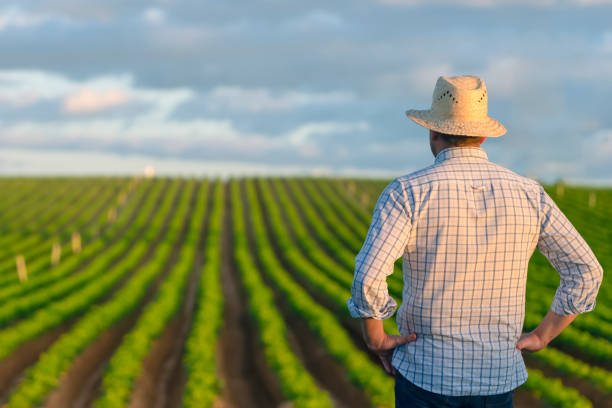

From the Farm to Your Fork
— Reclaiming Our Right to Real Food
Our food system is in crisis. What was once grown with care and connection to the Earth is now often manipulated, processed, and stripped of its natural integrity. From genetically modified ingredients and ultra-processed fake meats to "forever chemicals" in our soil and water, today’s food landscape poses serious risks to our health and our future. At the same time, millions—especially in Black and Indigenous communities—live in food deserts, where fresh, affordable, and nourishing food is out of reach. Meanwhile, the cost of healthy food continues to rise, creating a system where access is determined by income, not need. A hundred years ago, Black farmers owned over 14 million acres of land. Today, we’ve lost more than 90% of that. The decline isn’t just about land—it’s about power, culture, and the ability to feed our own. Cherut Farms is our response. Our purpose is to reclaim the health, heritage, and healing that come from the land. We’re growing nutrient-rich, non-GMO, chemical-free food using sustainable, regenerative practices. And we’re doing it in partnership with a global network of Black farmers, gardeners, and growers—from Africa to the Caribbean, from South America to the Southern U.S.—as part of a movement toward food sovereignty, economic justice, and community wellness. We believe growing our own food is one of the most powerful acts of freedom. At Cherut Farms, every harvest is a step toward restoring what was lost and building what’s next.
food desert

14M acres of land in 1925

90% of land lost in 100 years
Timeline: 100 Years of Black Farming & Land Loss

Black farmers own 14-15 million acres of land—about 14% of all U.S. farms. Despite the hardships of Jim Crow, many Black families worked tirelessly to purchase land and build generational wealth through agriculture.

Black farmers face increasing barriers: lack of access to loans, USDA discrimination, intimidation, and land theft. By the late 1960s, Black farmers own less than 6 million acres.

The Reagan administration dismantles the USDA’s Office of Civil Rights, making it harder for Black farmers to file and follow through on complaints of discrimination. This accelerates land loss.

After decades of activism, the USDA settles a class-action lawsuit with Black farmers for racial discrimination in federal farm loan programs. Although over $1 billion was allocated, many eligible farmers were denied or received limited compensation.

A second round of settlement funds ($1.25 billion) is approved for additional farmers left out of the original case. Still, bureaucratic hurdles prevent many from accessing reparative justice.

The American Rescue Plan initially includes $4 billion in debt relief for socially disadvantaged farmers. Lawsuits from white farmers claiming discrimination lead to delays and a blocked rollout—further stalling recovery efforts.

Register for our Spring 2026 Farm
to Fork Subscription Plans.
Get ready to return to your roots with your plate full of fresh, nutrient-rich food straight from our farms to your fork. Our seasonal subscription plans give you direct access to clean, non-GMO produce grown with care by Black gardeners and farmers committed to your health and food security. Flexible, Affordable Plans – Choose weekly, bi-weekly, or monthly delivery options that fit your needs and your budget. Protect Your Health – Avoid toxic additives, preservatives, and "forever chemicals" by choosing clean, chemical-free agriculture products you can trust. Support Black Gardeners and Farmers – Your subscription helps empower Black farmers and gardeners, fostering economic growth and sustainability within our communities.
Increase in Food Costs by mid-2026
- Biodynamic food
- Organic gardening
- Organic food certification


